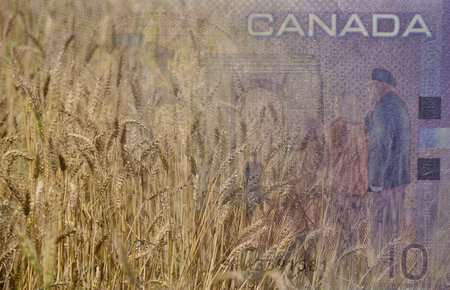AAFC projects a mixed start to 2017 but a generally positive outlook longer term
By Jennifer Jackson
Today, Agriculture and Agri-Food Canada (AAFC) released the 2017 Canadian Agricultural Outlook.
In 2016, net cash income will face a minor 2 per cent decline to $14.8 billion, while the net cash income for 2017 will decline 7 per cent to $13.8 billion, the report projects. Although the income values are speculated to decline, AAFC expects 2016 and 2017 to be the second- and fourth-best year on record, according to a Feb. 17 release.
The largest influencer of the net cash income decline will be the weak North American livestock industry, AAFC predicts. Cattle prices, for example, have decreased since hitting record-high values in 2015.
Other main risks outlined in the report include the Canadian dollar exchange rate and any changes in oil price. Both of these factors affect cash receipts, farm expenses and equipment operating costs.
In 2016, AAFC predicts crop receipts will increase 2 per cent in 2016 to $32.6 billion, and 1 per cent in 2017 to $32.9 billion. These increases are the result of strong marketing – high volumes of grain marketed in 2016 and a general increase of marketing in 2017.
As for livestock, Canadian livestock receipts are predicted to decrease by 7 per cent to $23.9 billion in 2016. This decrease in value is expected to decline further in 2017 by a value of 4 per cent. The growing supply of meat in the U.S. is putting downward pressure on North American meat prices.

Also in the report, AAFC is expecting farm operating expenses to decrease by 1 per cent to $44.2 billion in 2016, and increase by 2 per cent to $45.1 billion in 2017. The average Canadian farm will have a net worth of $2.8 million in 2017, the report says.
The overall economic projection for the short term is mixed, while those for the medium and longer term are positive, according to today’s technical briefing from AAFC.
Positive indicators for the industry include the expanding global population, the increasing disposable incomes of those in developing nations and increasing trade opportunities in farm products.
"Canada's agriculture and agri-food industry is a key driver of the Canadian economy,” Lawrence MacAulay, Minister of Agriculture and Agri-Food, said in the release. “The Government of Canada will support the continued growth of the sector by investing in research and innovation, working to open new markets around the world and collaborating with our provincial and territorial partners.”